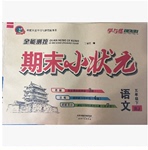题目内容
When you're looking forward to taking a holiday in Egypt, you're certainly not short of choices. The country has so many to see that you'll probably not want to limit yourself to just one city.
Hurghada-A Water Sports Paradise
With 250 hotels ranking from comfortable 3-star hotels

Lip to 5-star accommodation, the main attraction of staying here is the activities in and on the warm waters. It has become an international centre for water sports, allowing visitors to take part in surfing, sailing and deep sea fishing. The waters are also home to a huge variety of coral and fish, making it a dream spot for diving. If all that isn-t enough, Hurghada is home to some of the world's finest underwater gardens.
Luxor-An Open Air Museum of Ancient History

For those with an interest in Egyptian history, Luxor is an excellent place to stay and is built upon the site of the ancient Egyptian city of Thebes. If you make this the base for your Egypt holiday, you're basically staying in an open air museum!
The modern city of Luxor has the ruins of Karnak. Across the Nile lie many more monuments, temples and tombs including the Valley of the Kings and the Queens. The Nile sailing is necessary for those with an interest in the country's ancient history.
Cairo- The Capital City

Finally, of course, there's Cairo. It-s definitely a starting point for most of Egypt holiday makers. Cairo offers an excel-llent mix of culture, art, cooking and sightseeing chances. With the famous pyramids, various temples and some fascinating museums, Cairo is a fantastic choice if you can come to the city.
1.Visitors flood to Hurghada mainly because it can offer them _ .
A. the funniest botanic gardens
B. choices of water activities
C. a brief history of Egypt
D. the mix of culture and art
2.Which of the following cities do most tourists visit first in Egypt?
A. Cairo. B. Luxor. C. Thebes. D. Hurghada.
3.This passage is most probably taken from _ .
A. a historical document B. a science magazine
C. a travel guide D. a book review
 全能测控期末小状元系列答案
全能测控期末小状元系列答案
